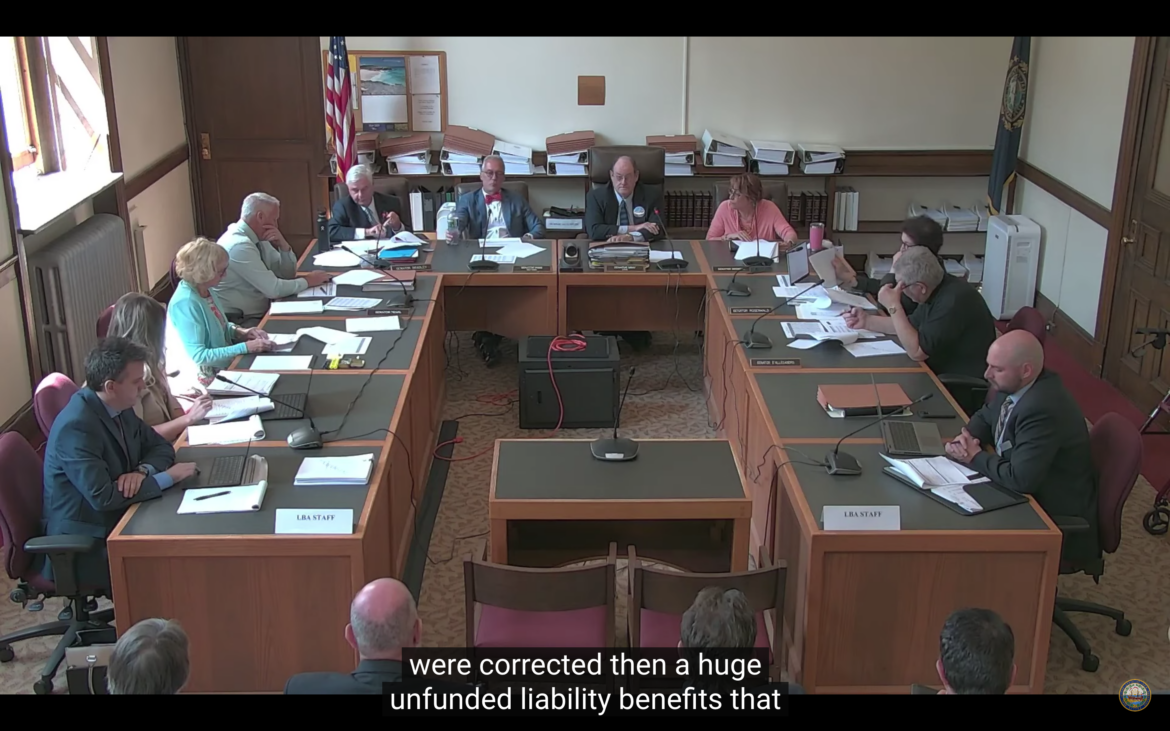By GARRY RAYNO, InDepthNH.org
CONCORD — In an attempt to provide more funding for needy communities, the Senate Finance Committee Tuesday decided to add about $11.5 million to its new education funding program.
The additional money which will be included in the five-year hold harmless program would increase the funding from 102 percent of this fiscal year’s aid to 104 percent.
Senate President Jeb Bradley, R-Wolfeboro, said he would introduce the amendment last Friday when the committee approved its new funding formula.
The money is intended to help communities like Berlin and Claremont that did not receive significant increases in state aid under the new formula, while school districts with large or growing student populations benefited more.
In introducing the amendment Tuesday, Bradley said the increase will help those communities that need a little more help.
The change will put the Senate about halfway between the House’s education formula and the governor’s for those communities, he said.
All three funding proposals would add more than $100 million in new aid to public schools, with the governor’s being the least at about $109 million and the Senate the most at about $170 million.
Bradley said the additional money will make it fairer to those communities as the state transitions to a formula based on student enrollment, the number of students on free and reduced lunch, in special education, and are non-English speaking.
The current formula includes stabilization grants to school districts based on what they received in the 2011-2012 school year in state education aid.
“This does make it fairer, but there is no perfect formula,” Bradley said, “but every dollar of the $109 million to Manchester or the $11.5 million to Berlin is property tax relief.”
Sen. Cindy Rosenwald, D-Nashua, said she worries about the towns that do not do that well under the Senate’s formula such as Berlin, Claremont and Derry.
And she noted current litigation could change everything.
“It’s a big unknown,” she said.
Retirement System
The Senate Finance Committee voted to approve establishing a commission with legislators, public employers and public employees to review the long-range impacts of additional benefits to retirees in the state retirement system.
The commission would replace $50 million in funding over the next biennium for Group 2 workers who were members of the retirement system, but not vested when major changes were made to how benefits were determined in 2011.
The House had included the money to help law enforcement and firefighters who receive reduced benefits due to lowering the multiplier in the formula.
The change affects 1,824 firefighters and law enforcement personnel who are Group 2 members.
The House said the change would right a wrong as the benefits changed for those who were in the system but not vested.
Those affected by the change say without restoring benefit eligibility to what it was when they entered the system, many employees will leave their positions and recruitment will be difficult.
At Tuesday’s meeting, Bradley said the total cost of the change was $250 million over 10 years on top of another change made last year that will bring total costs to $323 million over 10 years.
He said that does not include inflation or normalizing costs or a change in the rate of return on investment going forward.
The commission would look to balance additional benefits to retirees with the overall protection of the retirement system, which has a significant unfunded liability.
The changes made under Senate Bill 3 in 2011, which Bradley sponsored, included longer employment thresholds, changing the benefits calculation from the last three-years of service to five years, and including unused vacation and sick time and not uncompensated days when determining benefits.
The members of the commission would be four senators, four representatives, and representatives from the NH Municipal Association, the NH School Board Association, the NH Association of Counties, Professional Firefighters of NH, the Troopers Association of NH, the National Education Association, and State Employees Association.
“I know some are not going to be pleased with this,” Bradley said, “but we need to look at data from the Municipal Association.”
That data indicates the system is on the edge of long-term financial stability, he noted, and enhanced benefits need to be considered with that in mind.
Bradley said if they make the changes for this one group, all the other groups in the system will want the same changes.
Sen. Lou D’Allesandro, D-Manchester, said the state has a significant problem with Group 2 — law enforcement and firefighters — “and we have to do something, we have a (significant amount of vacancies with) state troopers.”
He noted Manchester does all right with recruitment, but most of its police officers have one or two years of experience, while those with greater experience have left.
The problem was everyone was cutting their own deal with their city or town and spiking their retirement benefits and that created a surge, he said.
Now they have to look long-term and find a way to retain employees, because constantly training new hires is expensive, D’Allesandro said.
The committee voted 5-2 to approve Bradley’s amendment.
Garry Rayno may be reached at garry.rayno@yahoo.com.





